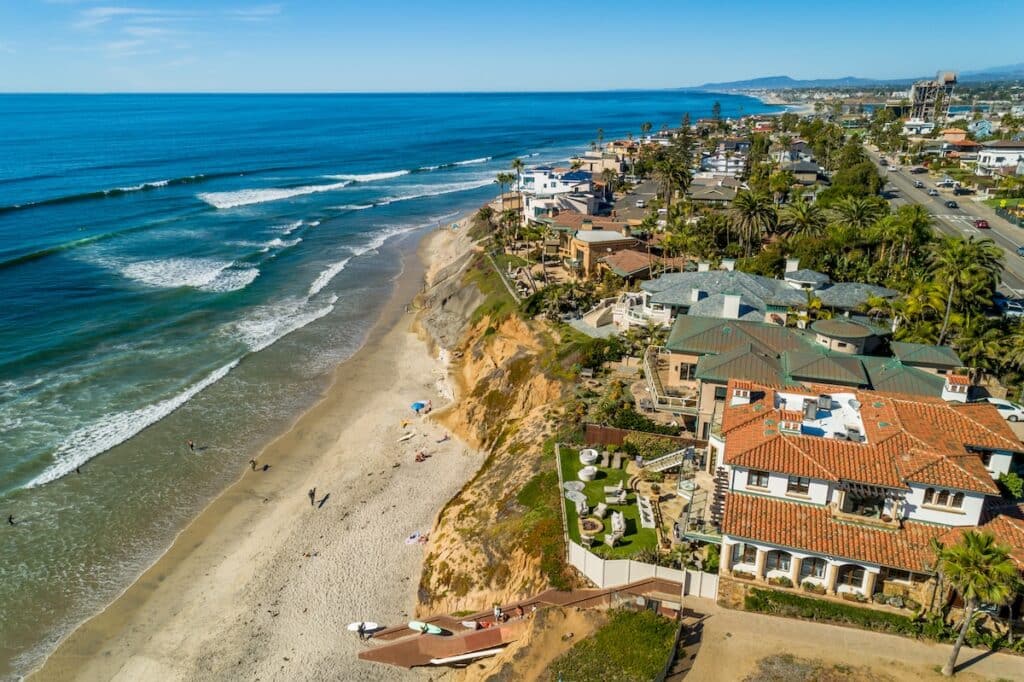This updated guide provides a thorough breakdown of common closing costs, offering valuable insights for anyone navigating the home buying process in today’s market. From rising appraisal costs to new title insurance regulations, understanding these expenses has never been more important. Key fees include loan origination fees, appraisal fees, title insurance, escrow fees, recording fees, and home inspection costs. We’ll highlight their typical costs, significance, and how to effectively manage them in 2025’s real estate landscape. Let’s explore the common closing costs and equip you with the practical tips needed to manage these expenses as you approach your home purchase.
Common Closing Costs
Loan Origination Fees
- What It Is: This fee is charged by the lender for processing your mortgage application and generating the loan. It covers the lender’s administrative and underwriting costs.
- Typical Cost: Loan origination fees typically range from 0.5% to 1% of the loan amount. For instance, if you take out a $500,000 loan, you can expect to pay between $2,500 and $5,000 in origination fees.
- Why It’s Important: These fees compensate the lender for evaluating and approving your loan. Understanding this cost helps with accurate budgeting in today’s fluctuating mortgage market.
Appraisal Fees
- What It Is: The appraisal fee covers the cost of a professional evaluation to assess the market value of the property. Lenders require this to ensure the property’s value aligns with the loan amount.
- Typical Cost: Appraisal fees generally range from $300 to $600, depending on the property’s size, location, and market conditions in 2025.
- Why It’s Important: In today’s market, where home values can fluctuate, accurate appraisals help protect both the buyer and lender from overpaying, ensuring the property is worth the loan amount.
Title Insurance
- What It Is: Title insurance protects against potential legal issues related to property ownership, such as hidden liens, encumbrances, or ownership disputes.
- Typical Cost: Costs vary, but generally range from $1,000 to $4,000, depending on the property’s value, location, and the insurer’s policy in 2025.
- Why It’s Important: Title insurance offers peace of mind, ensuring that the property is free of legal claims or disputes that could affect your ownership, a growing concern in today’s more complex real estate landscape.
Escrow Fees
- What It Is: Escrow fees are paid to the escrow company, which acts as a neutral third party to manage the transaction. This includes handling funds, documents, and ensuring all conditions of the sale are met before completing the deal.
- Typical Cost: Escrow fees typically range from $500 to $2,000, depending on the complexity of the transaction and the escrow company’s service fees in 2025.
- Why It’s Important: The escrow company ensures a smooth and secure transaction, helping both buyers and sellers meet the conditions required before funds and property change hands.
Recording Fees
- What It Is: Recording fees are charged by the county to officially record the property transaction in the public records, essential for legally transferring ownership.
- Typical Cost: These fees generally range from $50 to $250, based on local government rates and any updated legislation in 2025.
- Why It’s Important: Recording the transaction solidifies your legal ownership and provides an official public record of the property’s change in ownership, which is vital for future legal or financial dealings related to the property.
Home Inspection Fees
- What It Is: The home inspection fee is paid to a licensed professional who evaluates the property for structural integrity, safety, and identifies any potential issues that need addressing before finalizing the purchase.
- Typical Cost: Home inspection fees range from $300 to $500, with prices adjusting to factors such as the property’s size, age, and complexity of the inspection.
- Why It’s Important: A comprehensive home inspection can uncover hidden issues, allowing you to negotiate repairs or reconsider the purchase based on findings, which has become even more critical with the rising costs of homeownership in 2025.
Budgeting for Property Taxes and Homeowners Insurance
When purchasing a home in Coastal North County San Diego, it’s crucial to recognize that property taxes and homeowners insurance are significant ongoing expenses that affect both your monthly budget and closing costs. These expenses are often prepaid at closing, so it’s essential to plan and budget for them in advance. Here’s a closer look at these two costs:
Property Taxes
What They Are: Property taxes are levied by the local government based on the assessed value of the property. These taxes fund critical public services such as education, infrastructure, public safety, and emergency services, all of which are becoming more vital as the region experiences growth and development in 2025.
How Much to Expect: In Coastal North County San Diego, property tax rates typically range from 1% to 1.5% of the property’s assessed value. For example, a home valued at $1,000,000 could result in annual property taxes ranging between $10,000 and $15,000. Given the recent real estate price increases, these taxes may fluctuate, so it’s wise to account for potential tax hikes.
Prepayment at Closing: At closing, you’ll often be required to prepay a portion of your property taxes. This prepayment can cover anywhere from six months to a full year of property taxes, depending on when you close and the terms of your mortgage agreement. In 2025, as tax assessments are frequently updated, it’s important to confirm your specific tax obligations in advance.
Why It’s Important: Prepaying property taxes ensures that there are no outstanding taxes when the property transfers ownership, protecting both you and the lender. This also establishes a reserve in your escrow account, allowing your lender to cover future tax bills without you needing to manage them directly.
Homeowners Insurance
What It Is: Homeowners insurance protects your home and personal property from risks like fire, theft, vandalism, or natural disasters. Additionally, it provides liability coverage in case someone is injured on your property. With the growing frequency of climate-related events, such as wildfires and floods, homeowners insurance is more essential than ever in 2025.
How Much to Expect: Homeowners insurance costs vary based on factors like the value and location of the property, as well as the coverage level you select. In Coastal North County San Diego, the annual premiums typically range from $800 to $2,000, but prices may increase as coverage for climate-related risks becomes more necessary.
Prepayment at Closing: Lenders typically require the first year’s premium to be paid in full at closing, ensuring that your home is insured from the moment you take ownership. This gives both you and your lender peace of mind, knowing the property is covered from day one.
Why It’s Important: Homeowners insurance is crucial for protecting your property and your financial well-being. With the unpredictable nature of natural disasters and the rising costs of rebuilding, having the right insurance coverage can help you recover from a loss without severe financial strain.
Tips for Budgeting These Costs
- Get Estimates Early: As soon as you begin the home-buying process, it’s important to obtain estimates for property taxes and homeowners insurance. With ongoing changes in tax rates and increasing costs for natural disaster coverage, understanding these expenses early helps you plan more effectively for your total closing costs.
- Set Aside Funds: Open a dedicated savings account for closing costs, including property taxes and homeowners insurance. Consistently contributing to this account throughout your home-buying journey ensures that you are financially prepared for closing. With the continued rise in housing costs, it’s more crucial than ever to plan ahead and keep track of any changes.
- Consult with Your Lender: Your lender can provide a comprehensive breakdown of how much you’ll need to prepay for property taxes and homeowners insurance. This information is typically included in the Loan Estimate you receive after applying for a mortgage. As market trends shift, especially with mortgage rates fluctuating, having this information upfront allows you to adjust your budget accordingly.
- Review Your Escrow Account: After closing, your lender will manage an escrow account to cover ongoing property taxes and insurance premiums. In 2025, it’s wise to regularly check your escrow account statements to ensure the funds are being correctly allocated and to spot any potential discrepancies, especially with rising property tax rates.
Who Pays for What?
Understanding who is responsible for which closing costs can significantly impact your financial planning when purchasing a home. While buyers typically handle many closing costs, sellers can often negotiate to cover some. Here is a detailed breakdown of the usual division of these costs:
Buyer’s Costs
Loan Origination Fees
- Description: Fees charged by the lender for processing the mortgage application and creating the loan.
- Typical Payer: Buyer.
Appraisal Fees
- Description: Fees for a professional assessment of the property’s market value, required by the lender to ensure the home’s value justifies the loan amount.
- Typical Payer: Buyer.
Home Inspection Fees
- Description: Fees for a professional inspection of the property to identify any potential issues before completing the purchase.
- Typical Payer: Buyer.
Title Insurance (Owner’s Policy)
- Description: Insurance that protects the buyer against future claims or disputes over property ownership. With rising concerns over legal and ownership disputes, title insurance is more important than ever.
- Typical Payer: Buyer.
Escrow Fees
- Description: Fees paid to the escrow company for managing the closing process. These are often split between buyer and seller.
- Typical Payer: Buyer (often split with seller).
Recording Fees
- Description: Fees charged by the county to officially record the property transaction in public records.
- Typical Payer: Buyer.
Prepaid Costs
- Description: This includes property taxes, homeowners insurance, and prepayment of interest, which are due upfront at closing. As costs for these services increase, it’s crucial to plan for the upfront expenses.
- Typical Payer: Buyer.
Private Mortgage Insurance (PMI)
- Description: PMI might be necessary when the down payment is below 20%, safeguarding the lender in case of default.
- Typical Payer: Buyer.
Seller’s Costs
Real Estate Agent Commissions
- Description: Commissions paid to both the buyer’s and seller’s agents, typically a percentage of the home’s sale price.
- Typical Payer: Seller.
Title Insurance (Lender’s Policy)
- Description: Insurance that protects the lender against future claims or disputes over property ownership.
- Typical Payer: Seller (in some regions, it’s customary for the seller to pay for this, but it can vary).
Transfer Taxes
- Description: Taxes imposed by the state, county, or municipality on the transfer of property.
- Typical Payer: Seller.
Escrow Fees
- Description: As previously mentioned, buyers and sellers can split escrow fees, but sometimes the seller might cover the entire cost.
- Typical Payer: Often split, but sometimes covered by the seller.
Repairs and Concessions
- Description: Any repairs requested by the buyer or concessions made to facilitate the sale, such as covering a portion of the buyer’s closing costs.
- Typical Payer: Seller.
Negotiating Closing Costs
- Market Conditions: In a buyer’s market, where there are more homes for sale than buyers, you might have more leverage to negotiate for the seller to cover some of your closing costs. Conversely, in a seller’s market, the seller might be less willing to negotiate.
- Contract Terms: Work with your real estate agent during the offer and negotiation phase to identify negotiable costs. It’s common to ask the seller to cover some of the closing costs, particularly if they are eager to close the deal quickly.
- Closing Cost Credits: Some sellers offer closing cost credits, where they agree to contribute a certain amount towards the buyer’s closing costs to sweeten the deal.
Practical Tips to Prepare for Closing Costs
Preparing well for closing costs makes the home buying experience smoother and more financially manageable. Here are some practical tips to help you navigate these expenses effectively:
Understand Costs in Advance
Why It’s Important: Knowing what to expect in terms of closing costs helps you avoid surprises and plan your budget accordingly.
How to Do It:
- Loan Estimate: Request a Loan Estimate from your lender as soon as you apply for a mortgage. This document provides a detailed breakdown of your estimated closing costs, including loan origination fees, appraisal fees, title insurance, and more.
- Closing Disclosure: Review the Closing Disclosure form, which you’ll receive at least three days before closing. This document gives a final summary of all the costs involved, allowing you to compare them with the initial Loan Estimate and identify any discrepancies.
Negotiate Closing Costs
Why It’s Important: Negotiating can reduce the amount you need to pay out-of-pocket, making the home purchase more affordable.
How to Do It:
- Seller Concessions: Discuss with your real estate agent the possibility of negotiating for the seller to cover some of your closing costs. This strategy works especially well in a buyer’s market or when the seller wants to close quickly
- Shop Around: Compare costs from different service providers for essential services like title insurance, home inspections, and escrow services. Sometimes, you can find lower fees by shopping around.
- Lender Credits: Ask your lender if they offer any credits toward closing costs in exchange for a slightly higher interest rate. This can help reduce your upfront expenses.
Save Early
Why It’s Important: Starting to save early ensures that you have sufficient funds available when it’s time to close.
How to Do It:
- Set a Budget: Determine how much you need to save by estimating your closing costs based on the home’s purchase price. Aim to save at least 2% to 5% of the purchase price to cover these costs.
- Create a Savings Plan: Set up a dedicated savings account for your closing costs and contribute to it regularly. Automate your savings by setting up recurring transfers from your checking account to your savings account.
Work with a Good Lender
Why It’s Important: A knowledgeable lender can provide clarity on all costs involved and help you budget effectively.
How to Do It:
- Research Lenders: Choose a lender with a strong reputation for transparency and excellent customer service. Read reviews and ask for recommendations from your real estate agent.
- Ask Questions: Don’t hesitate to ask your lender to explain any fees or costs you don’t understand. A good lender takes the time to ensure you fully understand your financial obligations.
Seek Expert Guidance
Why It’s Important: An experienced real estate agent can offer valuable insights and connect you with trusted professionals to help you navigate the closing process smoothly.
How to Do It:
- Real Estate Agent: Work with an experienced agent who understands the local market in Coastal North County San Diego. They can guide you through the negotiation process and help you identify opportunities to save on closing costs.
- Professional Network: Utilize your agent’s network of trusted professionals, including lenders, inspectors, and title companies, to ensure you’re getting the best service and rates possible.
By taking a proactive approach and following these practical strategies, you can better prepare for closing costs and ensure a smoother, more confident home-buying experience. Understanding what to expect financially allows you to avoid surprises and make informed decisions that align with your budget and long-term goals.
For even more expert guidance, explore our articles Success Tips for First-Time Homebuyers: Setting Realistic Expectations and Avoiding Home Buying Mistakes: Expert Real Estate Agent Tips. These resources provide valuable insights to help you navigate the home-buying process with ease, avoid common pitfalls, and move forward with clarity and confidence.
Understanding and preparing for closing costs is essential to avoid last-minute financial surprises. For personalized advice and to discuss your home buying journey in Coastal North County San Diego, contact Kelli Miller today. Let’s make your home buying process smooth and stress-free!



